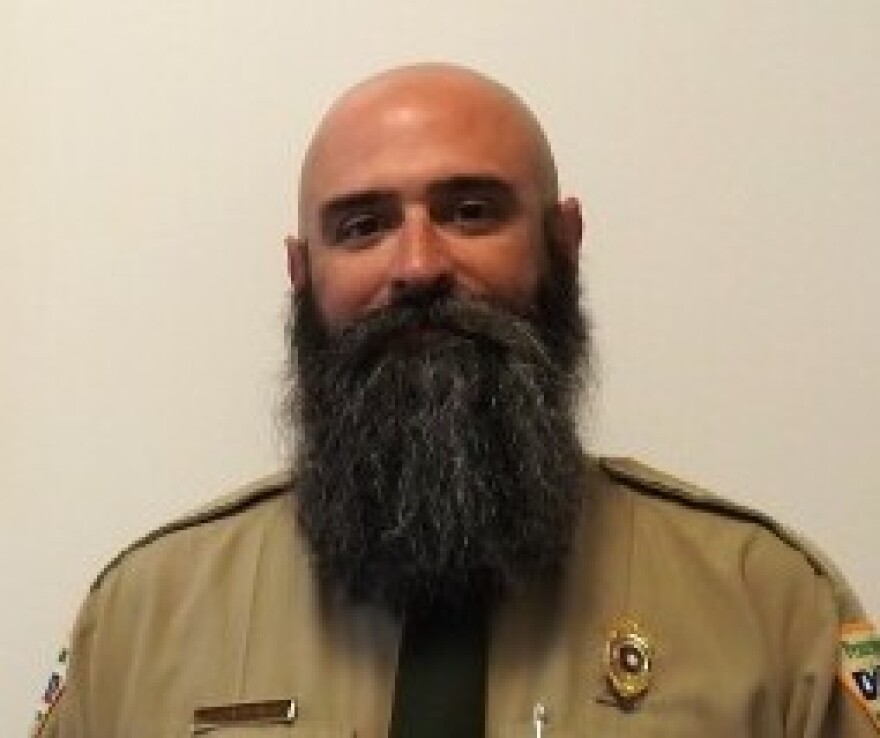Joe Mattioli found peace in nature during his recovery.
He helps others living with substance use disorder through his role as the board vice president for Northbound & Co., a regional recovery hub through the state Department of Drug and Alcohol Programs, or DDAP.
And now, he can encourage people to use the state's park system to aid their recovery through Pennsylvania's Recovery in Nature initiative, which tapped Frances Slocum as the corresponding state park for Northbound & Co.'s region.
“This disease can feel so overwhelming and hard,” Mattioli said. “Not just figuring out how to stay clean and sober a day at a time, but also how to try to start to fix and repair the reasons why you drank, or some of the damage and wreckage you may have caused. When you're out in nature, it's so vast and huge that all of a sudden, it helps create a perspective change, that maybe what I'm thinking about may not be as big a deal, maybe it isn't as overwhelming as I thought.”

Recovery in Nature highlights nature’s healing power
DDAP collaborated with the state’s Department of Conservation and Natural Resources (DCNR) on the Recovery in Nature initiative, which runs through the end of September in conjunction with National Recovery Month.

National Recovery Month has been observed every September since 1989 to promote and support recovery and treatment efforts.
The initiative selected nine state parks to coincide with the state’s nine regional recovery hubs.
“Recovery in nature is designed to remind Pennsylvanians of the healing power of nature, particularly for individuals in recovery from a substance use disorder to get outside, take advantage of the trails and waterways throughout the Commonwealth state parks,” said Kevin Koflanovich, Frances Slocum’s park manager. “Spending time in nature can be a very calming and powerful aid to recovery.”
Lake Shore Trail as a metaphor for recovery
Lake Shore Trail, the park’s featured trail through the initiative, takes hikers through a wooded area before ending with a view of the lake.

“It dips into the woods a little bit, so you get the in the woods feel, but then it makes its way back out to the water, and you see that picturesque landscape, which is beautiful every season of the year, especially coming into now, as the leaves are changing. When the lake is still, you get the mirror effect off the water. It's very rejuvenating, refreshing, and because of its picturesque nature and all skill level aspect to it, we were selected,” Koflanovich said.
To Mattioli, the terrain is a metaphor for recovery.
“The reason that that trail is really great for a recovery walk, because it's this idea that I might be in this narrow shoot, I might not be able to see very far around me, but if I just keep going, if I don't quit, I just keep moving through. It gets broader, it gets roomier, and then all of a sudden it's incredibly beautiful, so long as I keep on the journey,” Mattioli said.
Supporting recovery efforts beyond September
State park officers carry naloxone year-round. Naloxone reverses an opioid overdose.
“DCNR actually requires all the state park officers to be trained in administering the naloxone. All the officers carry a kit … I have had officers in the past that have had to [use it]. It's a wonderful tool to have on board, just like any of our other tools, like a first aid kit,” Koflanovich said.
Officers at Frances Slocum carry the nasal spray version from Narcan.

Mattioli said normalizing officers carrying naloxone kits is part of what he calls, “recovering out loud.”
“The more people talk and act and think like that, the more people we're going to see living a life of recovery, because that stigma won't keep them quiet in the dark,” he said.
Koflanovich encouraged people of all backgrounds and experiences to check out the park, even once the initiative ends.
“The outdoor beauty that we have here, the recreation, the trails, the lake, it's more than just for recreation. It's important for physical health, because as you walk the physical activity helps. But the mental benefit of just being out in this glorious place tends to improve mental well being as well,” he said.
Mattioli said talking about recovery is a year-round focus at Northbound. He wants people to keep the conversation going past National Recovery Month.
“[Addiction] happens, and there's a beautiful life on the other side of it,” Mattioli said.
For those seeking treatment for themselves or a loved one, contact the PA Get Help Now helpline
1-800-662-HELP (4357)
OR Text 717-216-0905







